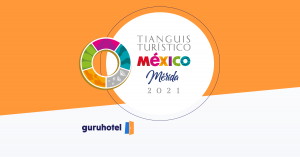The crisis and isolation that we are currently experiencing has caused activities as pleasant as traveling with our loved ones, venturing out to know new corners of the world or vacationing in a comfortable place, seem from a distant past. Thinking about it is cause for nostalgia, when weeks ago it was common.
The immediate effects of the crisis
Faced with this radical change, tourism companies have faced the hostility of a panorama that is difficult to overcome now. For example, in Mexico alone, May is the month that has presented, so far, the highest concentration of canceled tourist reservations, almost 50% compared to the period from March to December 2020, according to the data it offers Merca 2.0. To this must be added the damage caused by the government's declaration regarding the suspension of non-essential work in public, private and social sectors: the cessation of operations, the lack of income and, therefore, economic survival. And yet they don't give up.
The tourism industry will emerge ahead, it is a fact, although with still more changes and without an exact date of return to their daily tasks.
Know how to face the crisis
It sounds pessimistic or preventive, depending on how you look at it, but global crises come and go, and it is just from past experiences - such as the terrorist attacks of September 11, the SARS or H1N1 epidemics - that experts in the areas of health, economy and tourism can analyze and prepare for future challenges. Crises such as those that were unleashed after the terrorist attacks of September 11, the Great Recession, the SARS or H1N1 epidemics are precedents for what we are experiencing today due to the COVID-19 pandemic.
A gap towards new ideas
Reinvent the uses of hotel facilities
An example is the case of the Meliá Sarriá hotel in Barcelona, which decided to collaborate with a network of ambulances in its city and fitted out its facilities to turn them into a medical center. The cause of the medicalization of hotels in Spain is well known: hospitals are saturated with patients. Of course, Meliá Sarriá is not the only hotel that has adapted to this modality. The good thing about this is that unemployment has been avoided for many workers.
In this sense, during and after the health crisis, hotel companies and the health sector could work in symbiosis to address new strategies that protect their patients and their guests.
Implement cutting-edge technologies
What will human contact be like after COVID-19? It will certainly not remain as we knew it before. Extreme hygiene and the reduction of physical contact will open doors for companies to invest in tools that offer confidence to their customers: from biometric sensors or devices that do not require to be touched, to identification of gestures and movements (such as those already offered by some video game consoles). These transformations from physical contact to digital, hand in hand with the new 5G technologies, will open up a completely unexplored panorama.
The potential and expectation of the tourism industry and its consumers Although the procedure is much more difficult than its theory, developing new skills that cover, in turn, new social needs will be an open field for the hotel industry and the tourism sector in general .
Although there are many negative effects that the arrival and uncertain persistence of COVID-19 implies, despite everything, tourism companies will have the opportunity to put their imagination and creativity to the test in these apparently “inactive” times. Seeing what awaits us in this area could be exciting after all.








